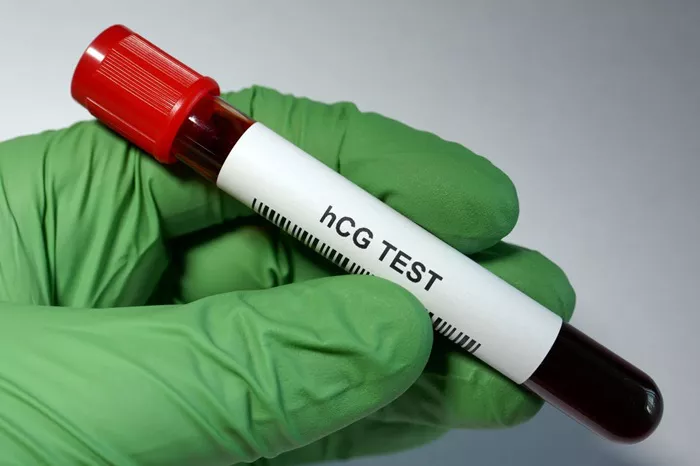Blood pregnancy tests are a reliable method to confirm pregnancy. These tests measure the level of human chorionic gonadotropin (hCG) in the blood. This hormone is produced by the placenta shortly after a fertilized egg attaches to the uterine lining. Unlike urine tests, blood tests can detect pregnancy earlier and are more sensitive.
Understanding Blood Pregnancy Tests
Types of Blood Pregnancy Tests
There are two types of blood pregnancy tests: quantitative and qualitative.
Quantitative Blood Test: Measures the exact amount of hCG in the blood. This test can detect even very low levels of hCG and can give a precise estimate of how far along the pregnancy is.
Qualitative Blood Test: Simply provides a yes or no answer to whether hCG is present in the blood. This test is similar to a home urine test but can detect pregnancy slightly earlier.
When Does hCG Appear in the Blood?
hCG begins to appear in the blood shortly after implantation. This usually occurs 6 to 12 days after conception. The levels of hCG then double approximately every 48 to 72 hours during the early weeks of pregnancy. By the time a woman misses her period, hCG levels are usually high enough to be detected by both blood and urine tests.
Earliest Time to Take a Blood Pregnancy Test
6-8 Days After Ovulation
Blood pregnancy tests can potentially detect pregnancy as early as 6-8 days after ovulation. This is typically the earliest time frame because it takes about a week for the fertilized egg to travel through the fallopian tube and implant in the uterus.
Factors Affecting Timing
Several factors can influence when you can take a blood pregnancy test:
Ovulation Timing: Knowing your ovulation date can help you pinpoint the best time to test. Ovulation can vary from woman to woman and cycle to cycle.
Implantation Timing: Implantation can occur at different times, typically 6-12 days after ovulation. Early implantation means hCG will appear sooner.
Sensitivity of the Test: Quantitative tests can detect lower levels of hCG compared to qualitative tests, making them suitable for earlier detection.
Signs to Consider Testing Early
Certain signs and symptoms might prompt you to take an early pregnancy test:
Implantation Bleeding: Some women experience light spotting when the embryo implants in the uterus.
Early Pregnancy Symptoms: Symptoms like fatigue, nausea, and breast tenderness can appear even before a missed period.
High-risk Factors: If you have a history of ectopic pregnancy or miscarriage, early detection might be crucial for early medical intervention.
SEE ALSO: What Are the Signs of Umbilical Cord Compression?
Accuracy of Early Testing
Early testing can yield accurate results, but there are considerations to keep in mind:
False Negatives: Testing too early can result in a false negative if hCG levels are not yet high enough to be detected.
Repeat Testing: If you test early and get a negative result but still suspect pregnancy, retest a few days later. hCG levels double every 48-72 hours, so waiting can improve accuracy.
Advantages of Early Blood Pregnancy Tests
Early Confirmation: Allows for early confirmation of pregnancy, enabling timely prenatal care.
Monitoring hCG Levels: Quantitative tests can monitor hCG levels over time, which is useful for tracking pregnancy progress or diagnosing potential issues.
Medical Decisions: Early detection can inform decisions regarding medication, lifestyle changes, and addressing any potential complications early on.
Consulting with Healthcare Providers
It’s important to consult with your healthcare provider about the best time to take a blood pregnancy test. They can provide personalized advice based on your health history, cycle regularity, and any symptoms you’re experiencing.
Steps to Take a Blood Pregnancy Test
Schedule an Appointment: Contact your healthcare provider to schedule a blood test.
Know Your Cycle: Provide accurate information about your menstrual cycle to help determine the optimal testing time.
Understand the Process: Blood will be drawn from a vein, typically in your arm. The sample is sent to a lab for analysis.
Get Results: Results can take a few hours to a few days, depending on the lab’s processing time.
What to Do After Testing
Positive Result: If your test is positive, schedule your first prenatal appointment. Start taking prenatal vitamins and follow your healthcare provider’s recommendations.
Negative Result: If your test is negative but you still suspect pregnancy, retest after a few days or discuss further testing options with your provider.
Follow Up: Whether the result is positive or negative, follow up with your healthcare provider for any necessary guidance and next steps.
Conclusion
Taking a blood pregnancy test can be done as early as 6-8 days after ovulation, but timing can vary based on individual factors. Early testing provides valuable information, especially for those with high-risk factors or early pregnancy symptoms. Consulting with a healthcare provider is essential to ensure accurate timing and results, and to receive the appropriate prenatal care or guidance.


